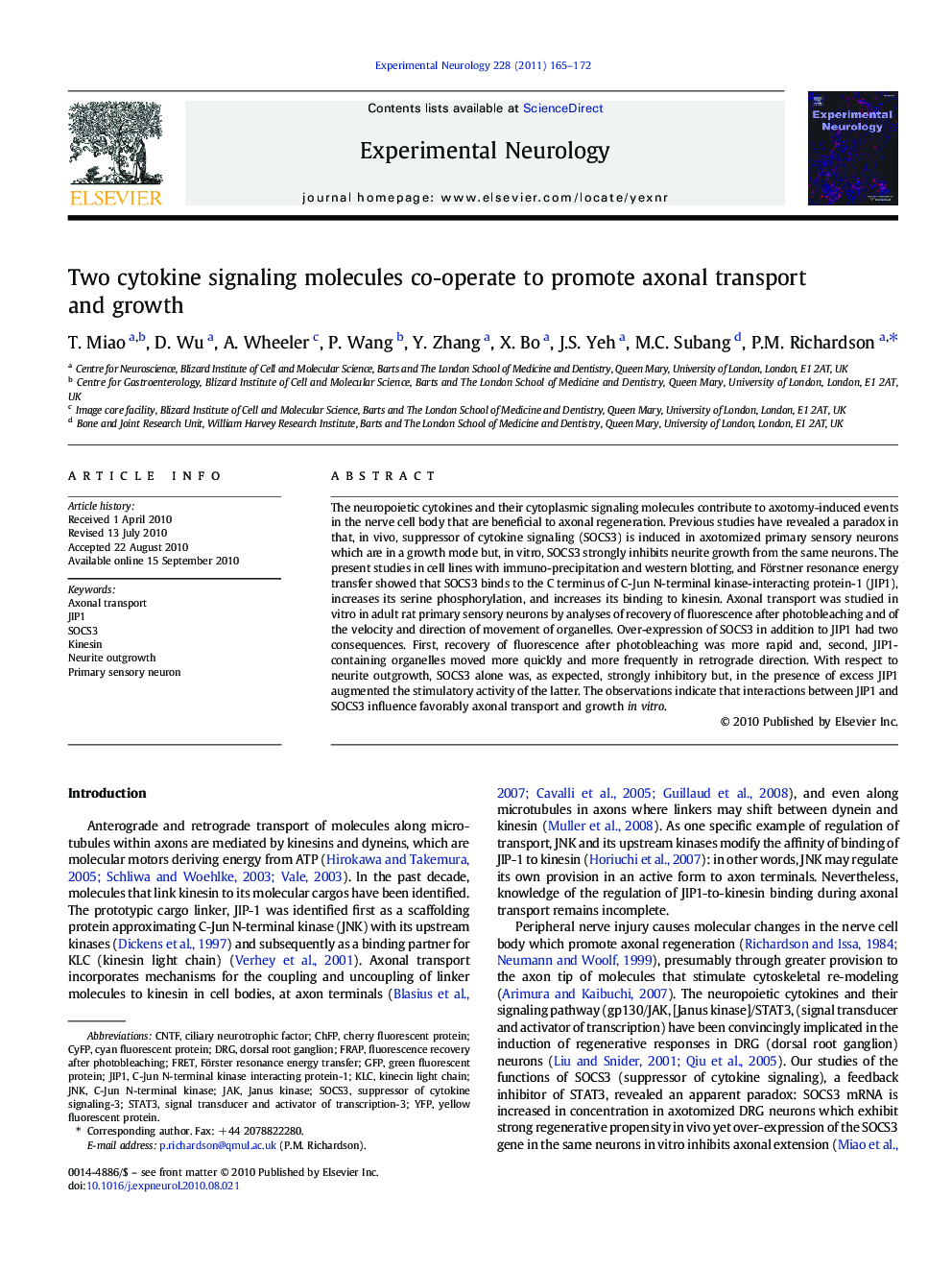| Article ID | Journal | Published Year | Pages | File Type |
|---|---|---|---|---|
| 3055890 | Experimental Neurology | 2011 | 8 Pages |
The neuropoietic cytokines and their cytoplasmic signaling molecules contribute to axotomy-induced events in the nerve cell body that are beneficial to axonal regeneration. Previous studies have revealed a paradox in that, in vivo, suppressor of cytokine signaling (SOCS3) is induced in axotomized primary sensory neurons which are in a growth mode but, in vitro, SOCS3 strongly inhibits neurite growth from the same neurons. The present studies in cell lines with immuno-precipitation and western blotting, and Förstner resonance energy transfer showed that SOCS3 binds to the C terminus of C-Jun N-terminal kinase-interacting protein-1 (JIP1), increases its serine phosphorylation, and increases its binding to kinesin. Axonal transport was studied in vitro in adult rat primary sensory neurons by analyses of recovery of fluorescence after photobleaching and of the velocity and direction of movement of organelles. Over-expression of SOCS3 in addition to JIP1 had two consequences. First, recovery of fluorescence after photobleaching was more rapid and, second, JIP1-containing organelles moved more quickly and more frequently in retrograde direction. With respect to neurite outgrowth, SOCS3 alone was, as expected, strongly inhibitory but, in the presence of excess JIP1 augmented the stimulatory activity of the latter. The observations indicate that interactions between JIP1 and SOCS3 influence favorably axonal transport and growth in vitro.
Research highlights►SOCS3 and JIP1, two molecules known for their function in cytokine signal transduction, interact in primary sensory neurons to influence axonal transport and axonal growth. ►SOCS3 binds to the C-terminus of JIP1 and alters its binding to kinesin. ►The results raise that possibility that the regenerative program in neurons can be stimulated by measures that influence axonal transport of growth-associated molecules.
